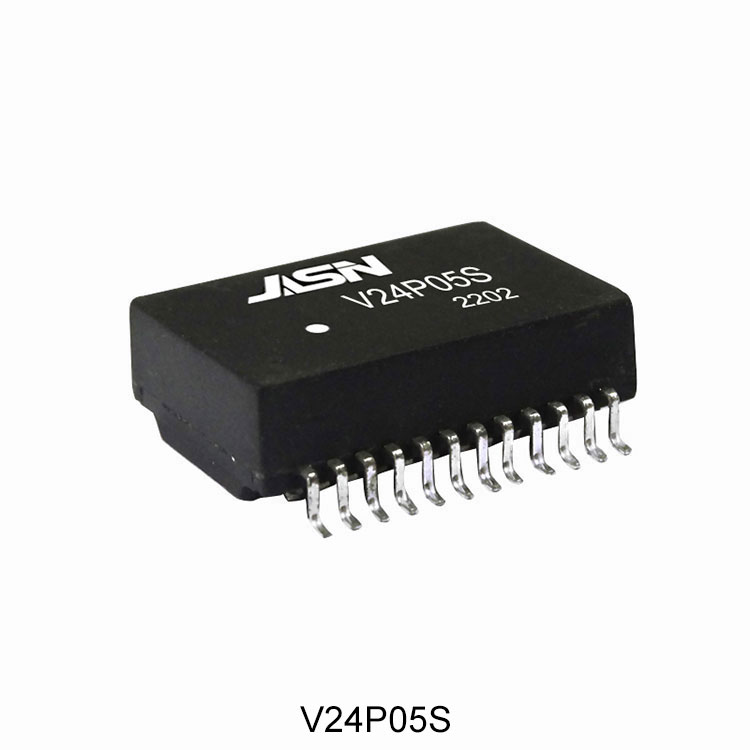The Power of Magnetics Modules: Revolutionizing Technology Across Industries
2025-04-09
In the rapidly evolving world of technology, one component that has gained significant attention for its versatility and efficiency is the magnetics module. These compact yet powerful devices are playing a crucial role in a variety of industries, from telecommunications and electronics to renewable energy and automotive systems. But what exactly are magnetics modules, and why are they becoming an integral part of modern technology?
What Are Magnetics Modules?
At their core, magnetics modules are devices that incorporate magnetic components to manage and control electrical energy. These modules typically include transformers, inductors, and capacitors, and are designed to optimize power delivery, signal transmission, and energy storage in electronic circuits. By using magnetic fields to store or transfer energy, magnetics modules offer a highly efficient and reliable way to handle electrical power.
Magnetics modules come in various configurations depending on their intended application. Some are designed to handle high-power transmissions, while others are used for signal conditioning and voltage regulation. Regardless of their form, these modules are crucial for ensuring the proper functioning of a wide range of systems.
Key Applications of Magnetics Modules
Magnetics modules are incredibly versatile and can be found in numerous industries and applications, including:
1. Power Electronics: Magnetics modules are often used in power supply units to regulate voltage and convert alternating current (AC) to direct current (DC) and vice versa. This is essential in everything from computer power supplies to renewable energy systems, ensuring that electrical devices receive the correct type and amount of power.
2. Telecommunications: In telecommunications systems, magnetics modules are used to filter signals, ensure signal integrity, and isolate different parts of the system. Their role in preventing interference and noise is key to maintaining high-quality communication networks.
3. Automotive Industry: With the rise of electric vehicles (EVs) and hybrid systems, magnetics modules are crucial for managing power flow, charging systems, and ensuring that energy is efficiently transferred between the battery, motor, and other components. Their use in EVs helps improve the overall efficiency and performance of these vehicles.
4. Renewable Energy: Magnetics modules play a vital role in renewable energy systems, especially in wind and solar power generation. These systems require efficient power conversion and storage, tasks that are made easier with the use of advanced magnetics modules.
5. Consumer Electronics: In everyday electronics such as smartphones, laptops, and home appliances, magnetics modules are used for power management, noise filtering, and signal processing. They help ensure that devices operate smoothly and efficiently, even under varying loads.
The Benefits of Magnetics Modules
- Efficiency: One of the primary advantages of magnetics modules is their ability to handle electrical power efficiently. By using magnetic fields to transfer energy, these modules minimize energy losses, ensuring that more of the power generated is effectively utilized in the system.
- Compact Design: Magnetics modules are often designed to be compact and lightweight, making them ideal for use in space-constrained applications. Their small size allows them to fit seamlessly into modern devices, without compromising on performance.
- Reliability: With their solid-state design and durable materials, magnetics modules are known for their longevity and reliability. Once installed, they require minimal maintenance and provide consistent performance over time.
- Noise Reduction: In many electronic applications, preventing electrical noise and interference is crucial. Magnetics modules are particularly effective at filtering out unwanted signals, ensuring that systems operate at peak performance without disruption.
- Versatility: As previously mentioned, magnetics modules can be customized to suit a wide variety of applications. Whether it's handling high-voltage power transmission or filtering low-frequency signals, magnetics modules can be tailored to meet specific needs in virtually any industry.
The Future of Magnetics Modules
As technology continues to advance, the role of magnetics modules will only expand. With the growing demand for electric vehicles, renewable energy sources, and more efficient power electronics, the need for highly effective magnetics components will be greater than ever. Innovations in materials science and manufacturing processes are likely to result in even more efficient and cost-effective magnetics modules in the years to come.
Additionally, as the Internet of Things (IoT) continues to shape the way devices communicate, magnetics modules will play an essential role in supporting the infrastructure that enables seamless connectivity and data transmission. Whether it’s powering a smart home system or managing energy in a large-scale industrial operation, magnetics modules will be key enablers of future technological advancements.
Conclusion
Magnetics modules are a cornerstone of modern electrical systems, providing the efficiency, reliability, and versatility that various industries need to thrive in today’s fast-paced technological landscape. From consumer electronics to renewable energy and automotive systems, magnetics modules ensure that power is efficiently managed and transmitted, keeping devices running smoothly and systems operating at optimal levels.
As technology continues to evolve, the importance of magnetics modules will only increase, making them a crucial component in the future of innovation. Whether you’re looking to enhance your energy efficiency or improve the performance of your systems, magnetics modules are the unsung heroes driving many of the advancements we see in modern technology.



